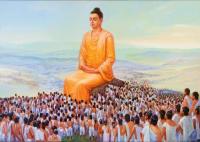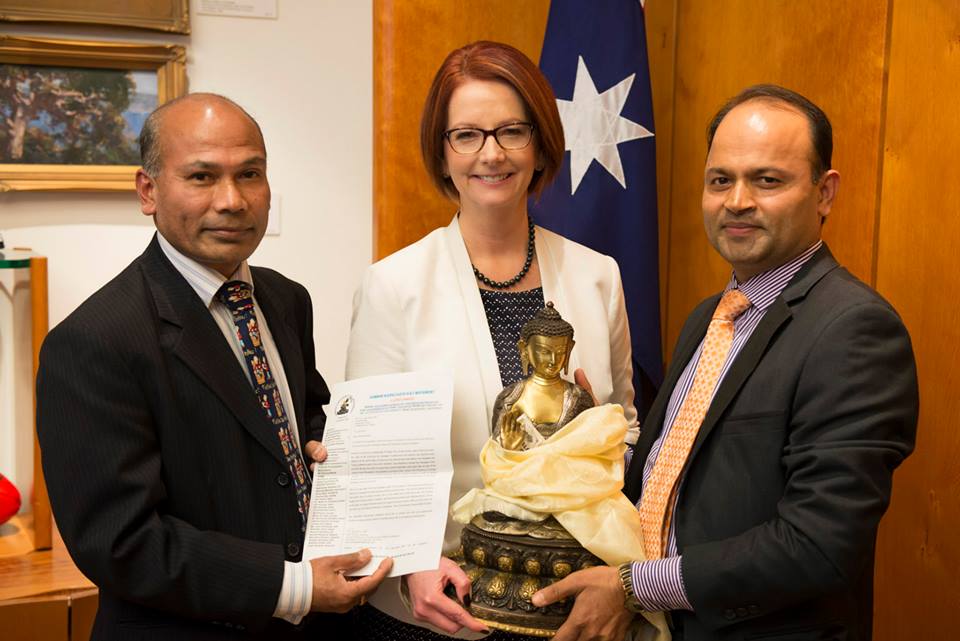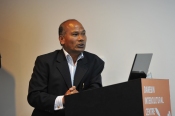Asia’s Nobel Prize for fighting Nepal’s flesh trade
Posted by Ram Kumar Shrestha on July 25, 2013
ANJALI SUBEDI
 KATHMANDU, July 24 While thousands of Nepali girls and women continue to struggle in red light hell in some corner of the country or abroad, a team of survivors of a similar fate who are fighting endlessly for the rescue of other victims of the flesh trade, has been nominated for the highly prestigious Ramon Magsaysay Award.
KATHMANDU, July 24 While thousands of Nepali girls and women continue to struggle in red light hell in some corner of the country or abroad, a team of survivors of a similar fate who are fighting endlessly for the rescue of other victims of the flesh trade, has been nominated for the highly prestigious Ramon Magsaysay Award.
Shakti Samuha is among the five latest winners of the award, which is considered Asia´s equivalent of the Noble Prize.
But even at the moment of glory, the eyes of team members are moist and their smiles not free of pain. Chairimaiya Tamang and Sunita Dunuwar, two of the 15 women who founded Shakti Samuha in 2000, could not stop empathising with many other Charimaiyas and Sunitas who are waiting to be rescued from a living death of satisfying the lust of many every single day. The two were informed this morning about the selection for the Magsaysay, which will fetches them $50,000.
“We were so soaked in the darkness of that hell that it is always there deep inside us. And we feel deep in our hearts that countless Nepali girls and women are still trapped in that situation, although a smile might often break in our faces,” said Tamang.
“We are very much delighted and encouraged at getting the award. The cash amount that comes with it will give us the resources to do our work more effectively,” said the 37-year-old current program coordinator of the organization.
Dunuwar, president of Shakti Samuha, added that the Magsaysay this time is special as it is honoring not a particular individual but an organization or team. She was indicating earlier Magsaysay winners from Nepal. Mahabir Pun was honored for his wireless technology revolution in the villages, Bharat Dutta Koirala for his contribution to development journalism, Dr Sanduk Ruit for developing cost effective lenses for the human eye and Mahesh Chandra Regmi for work on scientific land reform.
Shakti Samuha was visited by a team of two government officials from the Philippines this February. The visit left the organisation hopeful of some material support. “However, they said at the time that they were not in a position to offer any support as such though they might have some good news in future,” said Dunuwar. “Actually, they had come to study and assess our work. Later, we were told to submit some documents. And just 15 days ago, they gave us a hint that we had been nominated for the award.”
Tamang added that the documents were about how the organization was born, what it went through and what it has been doing to date. “They also wanted us to send videos but we only had documents and still pictures.”
In 1996, widespread police raids resulted in the rescue of 500 girls and women from Indian brothels. Among them were 148 Nepali girls and women who could, however, make it back to their homeland only six months after their rescue. “Journey ahead was not any smoother either. The government and society did not want to accept us. We had to face many hurdles even to just register the organization as we were discouraged every time we reached the CDO office for the purpose,” Tamang recalled.
Shakti Samuha is the first organization in the country to be established and run by survivors of girl trafficking and it has already been honored with several national and international recognitions. “But both in terms of the prestige of the awards and the cash amounts, this one tops them all!” said Dunuwar laughing.
While thousands of women and girls are already believed to be languishing in Indian brothels, it is estimated that over 10,000 are added to their numbers every year.
Binod Adhikari, director of the documentary film ´The color of brave´, which attempts to capture the world of human trafficking in South Asia with the focus on Nepal and is based on the 1996 rescue story, states that each and every girl he met while making the documentary yearned to come back home.
“I cannot express in words the extent of exploitation, abuse and torture they face in India. While the problem is of such gravity, the state´s attempts to rescue them have been too meagre or non-existent altogether,” he comments.
Dunuwar, who is one of the real-life characters in the yet to be released documentary, added that it is of the utmost important to make the state realize the seriousness of the problem and for this, greater media attention is needed.
“We might receive one award after another for our efforts, but until and unless the government itself acts to rescue the girls and really combat the trafficking, we cannot feel proud,” she said.
Shakti Samuha will receive the award at a ceremony set for August 31 in Manila.
@My Republica
Other Related News

















































Leave a comment